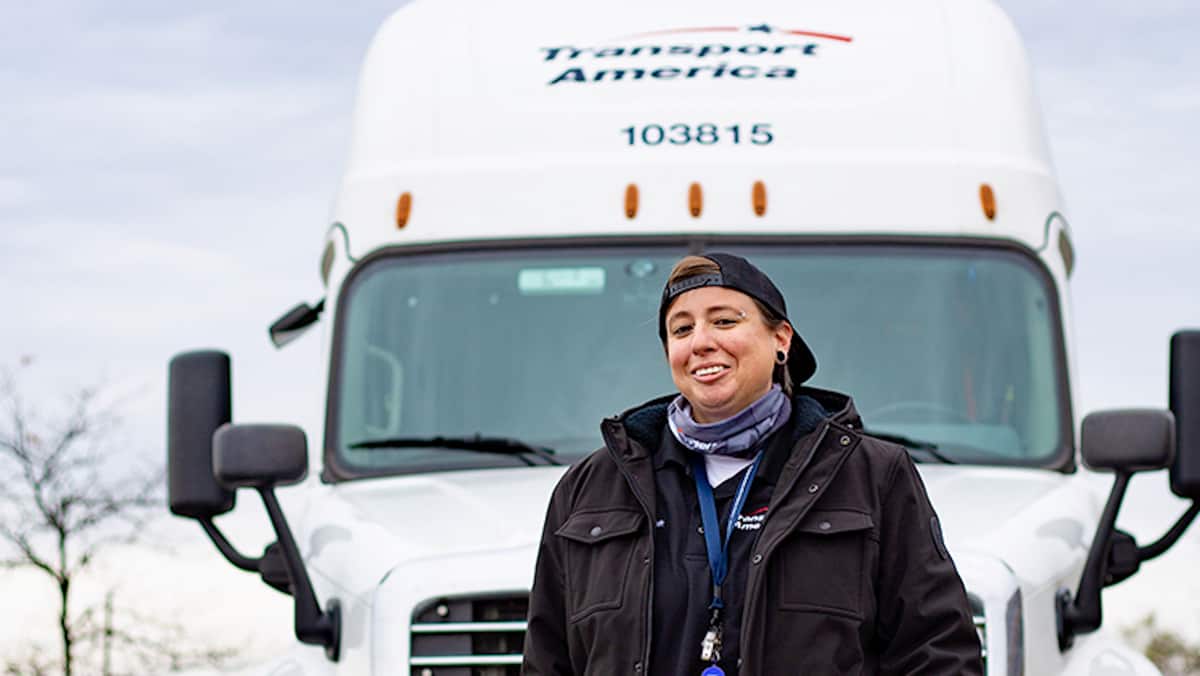In a year defined by the turbulence of the COVID-19 pandemic, Transport America, a Minnesota carrier owned by TFI International (NYSE:TFII), has been shifting its drivers and business toward a more predictable existence by embracing dedicated trucking services.
While the pivot had been in the works for several years, Transport America President Eric Anson said the market conditions have aligned to make it all the more timely: Shippers are competing for scarce trucks, while carriers are struggling to hire drivers.
“The environment is as difficult as I’ve ever seen with recruiting drivers,” Anson told FreightWaves.
The trucking company began 2020 with about 30% of its 1,200-truck fleet devoted to dedicated operations, with the remainder on irregular-route, over-the-road operations. It now stands around 40% dedicated and 60% irregular.
“We’re working toward a 50/50 split,” Anson said. “If we don’t achieve that goal, I’ll be happy to be in a good comfort zone.”
Better quality of life, predictable pay – and day rates

Transport America recently raised its per-mile rates by 1 cent for solo drivers and 2 cents for team drivers — less dramatic than some of increases being feted by some U.S. carriers. While Anson said the carrier regularly adjusts rates to keep pace with competitors, he sees the increasing proportion of dedicated routes as an important measure to bring on new hires and retain existing drivers.
The biggest selling point: more predictability in routes and pay, since drivers typically are serving a single customer and more consistent array of destinations. The dedicated drivers also are primarily paid day rates, a model that provides for a predictable paycheck.
Transport America also has dramatically higher retention rates for dedicated drivers versus their over-the road colleagues: 15% compared to 75%.
“If you can have predictability and consistency in your daily schedule, that comes with a better quality of life,” Anson said.
Transport America building resilience into its dedicated book of business
The carrier has been slowly rebalancing its truck divisions through attrition, while at the same time pursuing more dedicated customers with a focus on sectors more resilient to the pandemic whiplash and uncertainty in the economy.
“Our dedicated pipeline is saturated with food-and-beverage customers,” he said.
The dedicated division took a significant hit in March when the pandemic-related shutdowns brought the auto industry and manufacturing to a standstill. But with the right mix of customers — particularly those in consumer goods — the expanded dedicated division could help position the carrier for the next economic curveball.
It also positions the carrier with more predictable business that relies more on long-term relationships with shippers, particularly those companies that produce the things that consumers use in good times and bad — food and beverage chief among them.
TFI acquired the carrier for $310 million in 2014 when the Canadian trucking and logistics company was known as Transforce. It marked TFI’s first major trucking acquisition in the U.S.
Companies owned by TFI, including Missouri-based CFI, retain a large degree of autonomy but with a high bar for performance. As TFI CEO Alain Bedard told financial analysts in October, “The motto at TFI has always been, ‘You guys, we have to do more with less.’”
But Bedard also acknowledged its U.S. truckload carriers need more drivers, remarking that the company sometimes acquires small carriers to address the issue.
Closer ties with shippers through dedicated service
Looking beyond the drivers, Anson sees dedicated business as the ideal venue for having strong, long-term partnerships with shippers.
Transport America operates with a pod structure where each operating unit is located — allowing both the carrier’s drivers and personnel to be positioned closer to their customers.
“This provides the level of attention and resources for shippers big and small,” he said.
Despite shifting more drivers and resources into dedicated service, Anson said Transport America isn’t backing away from its over-the-road truckload business.
“We wouldn’t be successful without a robust, irregular-route, over-the-road truckload division,” he said.
Click for more FreightWaves articles by Nate Tabak
Canadian fuel distributor Parkland targeted in cyberattack
Lion Electric to go public in SPAC merger
Senior general to lead Canada COVID-19 vaccine distribution







